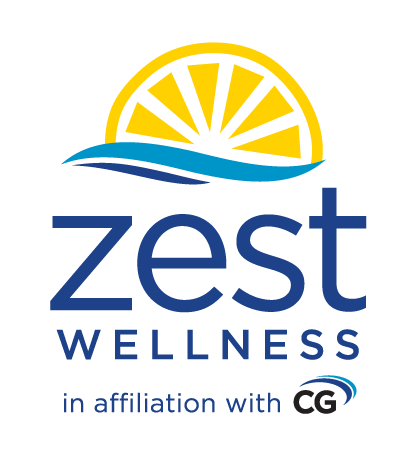Thrive Summit
Early this month, Zest Wellness representatives from Bermuda and The Bahamas attended the Virgin Pulse Thrive Summit, which was hosted in Scottsdale, Arizona. Our team has attended all of the Thrive Summit conferences since its inception in 2014 to learn more about Virgin Pulse program offerings, and to stay informed on the latest findings in the Workplace Wellness Industry.
Just as the industry is shifting from "wellness" to total "well-being," the Thrive Summit has evolved from focusing solely on employee health- whether it be physical, emotional or financial- to providing solutions across a multitude of workplace challenges.
One common issue at the forefront of today's workplace is the generational gap. Now that Millenials are emerging as the largest age group in the workforce, the traditional office environment is being challenged. Speakers Hannah Ubl and Scott Zimmer provided insight on how Baby Boomers, Generation Xers and Millennials were shaped by the climate of our respective upbringings, and how our communication styles can help to bridge barriers between these generations.
Keynote speakers at Thrive focused largely on emotional well-being. Today's employee is looking for a connection to their work that allows them to contribute to a purpose. Happiness researcher, Shawn Achor, elaborated on his popular Ted Talk to share that we can spread happiness in the workplace and in our personal lives by incorporating small, but meaningful habits.
“Take care of your employees, and they’ll take care of your business.”
Though many new topics were presented, the core of the Virgin Pulse program for many members is its fitness tracking, and the importance of physical fitness was not forgotten. One of the largest selling points to introducing corporate wellness is its impact on the bottom line: improved productivity, reduced absenteeism and decreased healthcare costs. But how does that specifically relate to physical activity?
A case study conducted at Virgin Pulse client, Central Michigan University (CMU), found a correlation between increased steps and decreasing costs. For every additional step a member takes on average, their claims decrease by $0.45. Furthermore, increasing steps had a large impact on the overall health of CMU employees. Over two years, overall employee average BMI reduced by 2 points and members with an average starting systolic blood pressure of greater than 140 decreased by 20 points. These findings represent the fact that the value of a corporate wellness program goes far beyond saving company dollars- it can help save lives.
The overall message presented at Thrive left the Zest team with practical knowledge to implement in the office, and a renewed sense of why we work to help our members lead healthier and happier lives.






